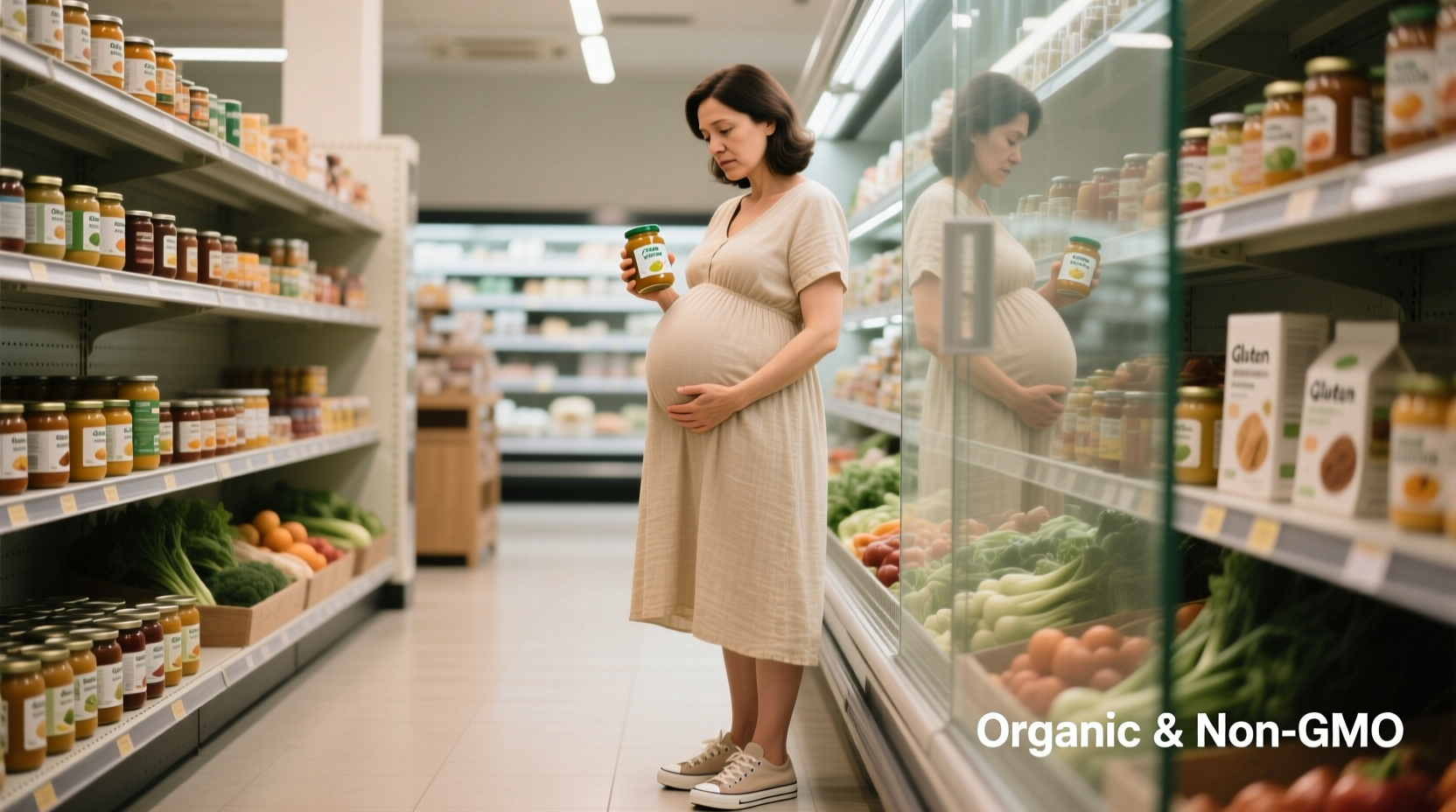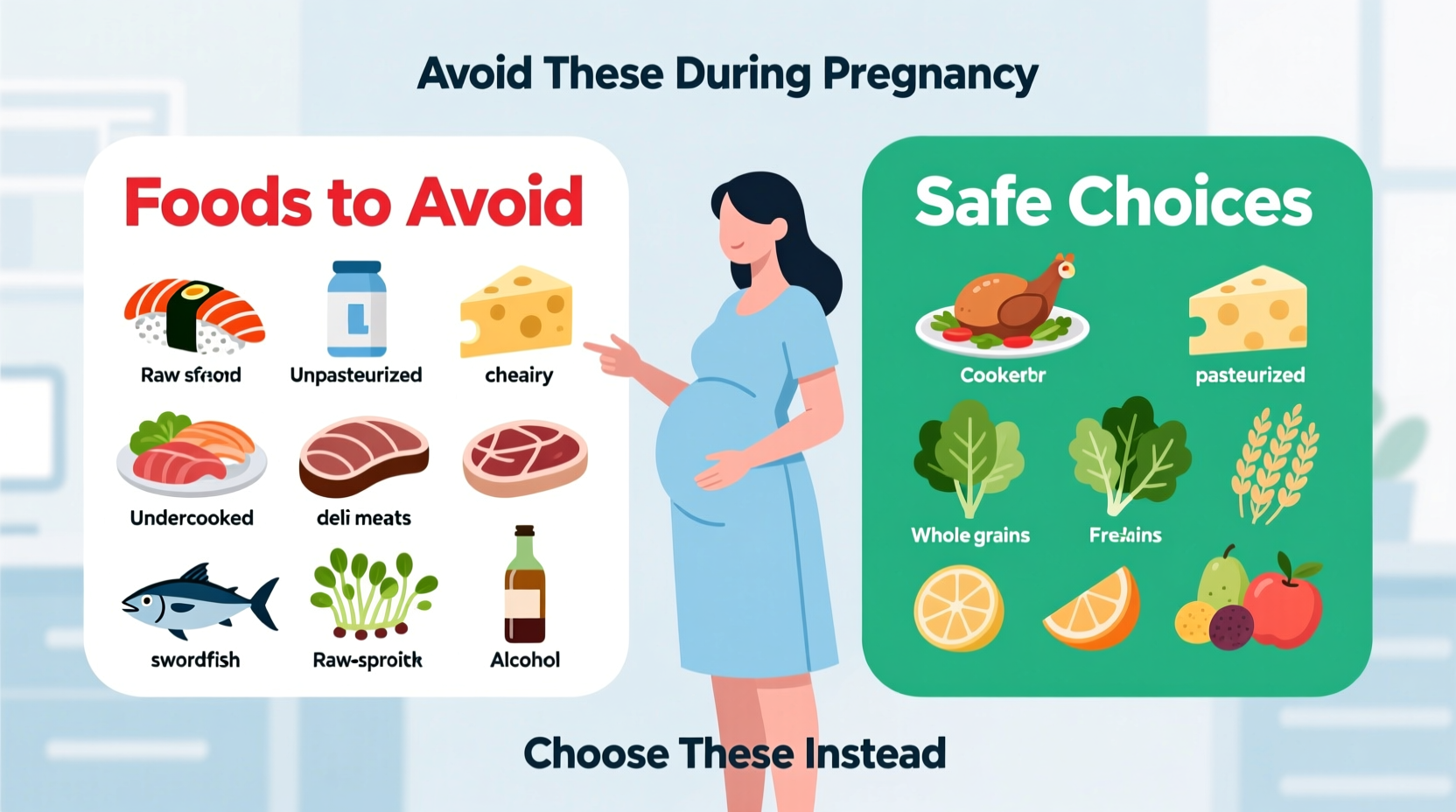Why Food Safety Matters During Pregnancy
During pregnancy, your immune system naturally weakens to accommodate your growing baby. This makes you more vulnerable to foodborne illnesses that could seriously impact fetal development. According to the Centers for Disease Control and Prevention, pregnant women are ten times more likely to contract listeriosis than the general population. This bacterial infection can lead to miscarriage, stillbirth, or life-threatening infections in newborns.
High-Risk Foods to Eliminate Immediately
Certain foods pose such significant risks that medical professionals universally recommend complete avoidance throughout pregnancy. These aren't just "maybe" foods—they carry documented dangers that outweigh any potential benefits.
| Food Category | Specific Items to Avoid | Primary Risk | Safe Alternative |
|---|---|---|---|
| Raw Fish & Seafood | Sushi, sashimi, ceviche, raw oysters | Mercury, parasites, listeria | Cooked salmon, shrimp, catfish (2-3 servings/week) |
| Unpasteurized Dairy | Soft cheeses (brie, feta, blue), raw milk | Listeria monocytogenes | Pasteurized hard cheeses (cheddar, swiss) |
| Undercooked Meats | Raw eggs, rare steak, deli meats | Salmonella, toxoplasmosis | Well-cooked meats (165°F internal temperature) |
| High-Mercury Fish | Shark, swordfish, king mackerel, tilefish | Neurological development issues | Low-mercury options (salmon, shrimp, pollock) |
Understanding Listeria Risk in Common Foods
While many pregnant women know to avoid raw fish, they're often unaware that seemingly safe foods like pre-packaged salads and deli meats can harbor listeria. The FDA reports that listeria can grow even in refrigerated conditions, making it particularly dangerous. This bacteria causes approximately 1,600 illnesses annually in the United States, with pregnant women accounting for 27% of cases despite representing less than 1% of the population.

Hidden Risks in Everyday Foods
Some pregnancy food risks aren't immediately obvious. For example:
Raw Sprouts
Alfalfa, clover, radish, and mung bean sprouts frequently test positive for salmonella and E. coli. The warm, moist conditions required to grow sprouts are ideal for bacterial growth. The American College of Obstetricians and Gynecologists recommends avoiding all raw sprouts during pregnancy, even when labeled "ready-to-eat."
Excessive Caffeine
While moderate caffeine consumption (under 200mg daily) is generally considered safe, many pregnant women don't realize how quickly caffeine adds up. A single energy drink can contain 300mg or more—well above recommended limits. Research published in the American Journal of Obstetrics and Gynecology shows that high caffeine intake correlates with increased miscarriage risk.
Practical Food Safety Strategies
Avoiding problematic foods is only half the battle. Proper food handling significantly reduces risks:
- Reheat deli meats to steaming hot (165°F) before consumption
- Wash all produce thoroughly, even items with peelable skins
- Separate raw and cooked foods in your grocery cart and refrigerator
- Check expiration dates on dairy products and consume within 7 days of opening
What If You Accidentally Consume a Restricted Food?
Don't panic if you unknowingly eat something on the avoid list. The risk depends on multiple factors including your overall health and the specific food consumed. Contact your healthcare provider if you experience:
- Unusual fever (above 100.6°F) that doesn't respond to medication
- Severe abdominal cramps or diarrhea lasting more than 24 hours
- Muscle aches accompanied by nausea
Most importantly, don't let fear dictate your eating habits. Proper nutrition during pregnancy is crucial for fetal development. Focus on what you can eat rather than what you must avoid.
Your Pregnancy Food Safety Checklist
Keep this quick reference in your wallet or phone for grocery shopping:
- ✅ Choose pasteurized dairy products only
- ✅ Verify fish mercury levels using FDA's chart
- ✅ Cook eggs until yolks are firm (no runny eggs)
- ✅ Reheat deli meats until steaming hot
- ✅ Avoid raw sprouts in salads and sandwiches
- ✅ Limit caffeine to one 12oz coffee daily











 浙公网安备
33010002000092号
浙公网安备
33010002000092号 浙B2-20120091-4
浙B2-20120091-4